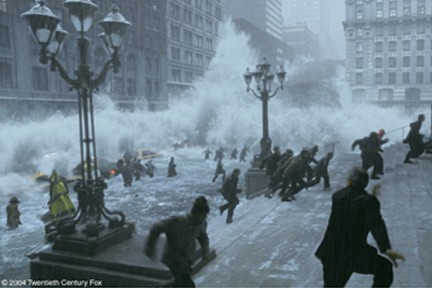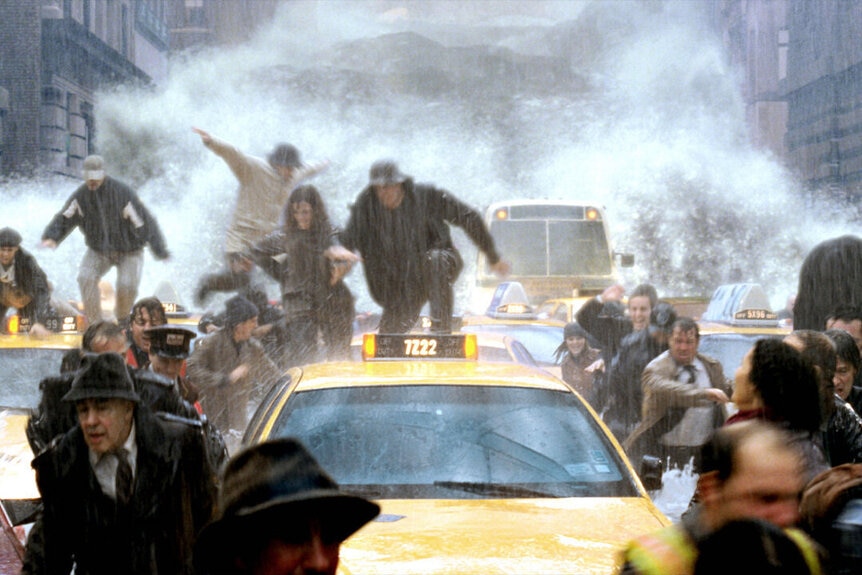“The Day After Tomorrow,” released in 2004, is a disaster film that captivated audiences with its thrilling storyline and groundbreaking special effects. Directed by Roland Emmerich, the film explores the catastrophic consequences of abrupt climate change, following a series of extreme weather events triggered by disruptions in the global climate system.

Set in a world where climate change accelerates beyond control, “The Day After Tomorrow” depicts a superstorm that plunges the Northern Hemisphere into a new ice age. As temperatures plummet rapidly, chaos ensues across the United States and other parts of the world, leaving millions of people stranded and fighting for survival.
At the center of the story is Jack Hall, a paleoclimatologist played by Dennis Quaid, who embarks on a treacherous journey to save his son Sam, portrayed by Jake Gyllenhaal, trapped in New York City amidst the unfolding disaster. Jack’s race against time to rescue his son mirrors the urgent need for humanity to address the real-life implications of climate change and its potential to alter the course of civilization.

The film’s visual effects are a standout element, showcasing massive tidal waves, destructive tornadoes, and the rapid advance of glaciers with stunning realism. Audiences were both thrilled and chilled by the eerily plausible depiction of a world pushed to the brink by environmental upheaval.
While “The Day After Tomorrow” is a work of fiction, it serves as a cautionary tale about the dangers of ignoring climate change and the fragile balance of nature. The film raises awareness about the interconnectedness of environmental systems and the potential for rapid and devastating shifts in global climate patterns.
Beyond its entertainment value, “The Day After Tomorrow” sparks conversations about the importance of environmental stewardship and the need for global cooperation to mitigate the impacts of climate change. It serves as a reminder that the choices we make today can have far-reaching consequences for the future of our planet.
In conclusion, “The Day After Tomorrow” remains a compelling and thought-provoking film that resonates with audiences for its gripping portrayal of a world in the grip of environmental catastrophe. As we confront real-world climate challenges, the film’s message rings true: the time to take action on climate change is now, before it’s too late.





